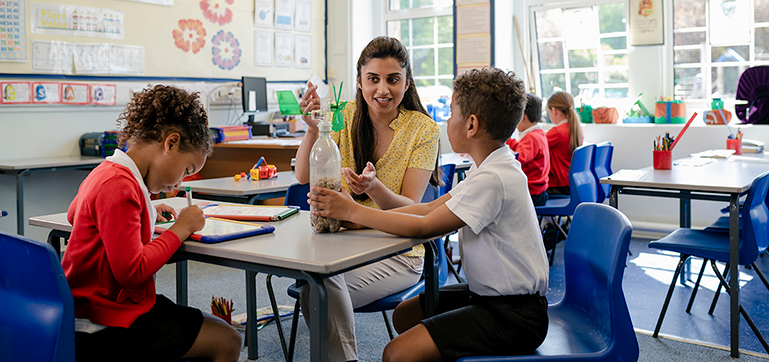Improving the evaluation, planning and co ordination of provision for learners with special educational needs (SEN) and other pupils who may require extra support

Quick links:
Context and background to the effective or innovative practice
Powys County Council was judged to be in need of significant improvement in 2019 and was removed from follow up activity in 2021.
Description of nature of strategy or activity
The council restructured its ALN services and appointed a new head of service. Support for pupils with SEN and ALN is a high priority for the education service and the head of service has works closely with the chief executive and the director of education to bring about improvements in the support provided to schools and pupils. The council brokered external support from experienced consultants and advisers to support this work. Officers are mindful of the need to sustain and build upon this work and strengthened performance management processes and improved professional learning opportunities to upskill and develop permanent members of the ALN team. Improved self-evaluation processes are helping officers to identify strengths and areas for improvement in the work of the ALN team and senior officers have high expectations of the team’s work. The ALN team has brought about these swift improvements in its work at the same time as supporting schools with the ALN transformation agenda.
Officers have developed good working relationships with schools. They have responded well to the views of headteachers and ALNCos as they put in place new systems and processes. Officers provide effective support and advice, for example through helpful weekly bulletins, meetings and valuable online resources. School leaders appreciate the authority’s single point of access for referrals into the Schools Service through the Powys Inclusion Panel (PIP) and the Early Years Inclusion Panel, as well as the bilingual ‘Tyfu’ platform and gateway. This platform is a very useful and easily accessible resource that ensures that SEN documentation and referrals are all available in one convenient access point.
The local authority offers valuable professional learning for schools and settings. For example, the service has funded a few teachers in special schools and specialist centres to study post-graduate diplomas in SEN provision. This expertise is shared beneficially with other providers. Other staff in special schools have undertaken professional learning to ensure a high-level of understanding of need. A county-wide training programme has also been established, so that teaching and support staff in all schools are able to develop skills in relation to a broad range of SEN, including autistic spectrum condition; speech, language and communication difficulties; specific learning difficulties and social, emotional and behaviour difficulties.
What impact has this work had on provision and learners’ standards?
Overall senior leaders within schools and settings feel well supported by local authority additional learning needs officers and central service staff. The local authority makes effective use of a range of data and information as part of its evaluation of services. Officers reflect on strategies that have worked well and those that have been less successful in terms of their impact on learners. For example, following a recent positive behaviour training event, nearly all delegates have made changes to their practice as a direct result of the professional learning. Many schools and settings report that they have already started to see a positive impact on practice including an improved consistency of approach from staff as well as a reduction in challenging behaviours and exclusions.
Information about the local authority
Powys County Council is a large, rural county in mid-Wales with a population of 132,515. It covers a quarter of the area of Wales and is one of the largest yet least populated counties in England and Wales. The local authority maintains 95 schools. The authority has one all-through school for pupils aged 3 to 16. There are 80 primary schools, including 21 that provide Welsh-medium education. There are 11 secondary schools, none of which are categorised as Welsh-medium schools. Six of these secondary schools are dual stream language schools. In addition, there are three special schools and a pupil referral unit.